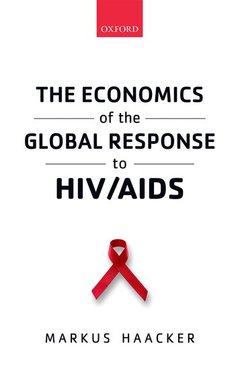Description
The Economics of the Global Response to HIV/AIDS
Author: Haacker Markus
Language: English
Subjects for The Economics of the Global Response to HIV/AIDS:
Approximative price 86.50 €
In Print (Delivery period: 21 days).
Add to cart
Publication date: 06-2016
304 p. · 17x23.5 cm · Hardback
304 p. · 17x23.5 cm · Hardback
Description
/li>Biography
/li>
The global response to HIV/AIDS has been a major aspect of global health and development policy over the last three decades. The book illustrates the devastating health impacts of the epidemic, with life expectancy in some countries falling to the lowest levels observed anywhere, and the remarkable success of the global HIV/AIDS response in reversing such extreme outcomes. Concerns about the implications of HIV/AIDS for economic development have played a role in motivating the global HIV/AIDS response. However, evidence on the impacts of HIV/AIDS on economic growth or poverty is weak, and the magnitude and relevance of such economic effects appears trivial compared to the consequences for life and health. Because of the success in extending access to treatment globally, HIV/AIDS has effectively transitioned into a chronic disease. This means that HIV/AIDS absorbs not only a substantial chunk of current global and national financial resources, but that these spending needs are projected to persist over decades. The costs of the HIV/AIDS response thus resemble a long-term financial liability, shaped by past and current policies. Relatedly, the calculus of cost-effectiveness of HIV/AIDS interventions has changed. People who become infected with HIV can now expect to not die because of AIDS; at the same time, each HIV infection results in medical needs and expenditures extending over decades. The book presents a framework for integrating these financial consequences and the transmission dynamics of HIV in the analysis of cost-effectiveness of HIV/AIDS interventions and in the design of HIV/AIDS programs.
Markus Haacker is an economist working at the intersections of macroeconomics, global health, public finance, and economic development. He is a Visiting Scientist at the Harvard School of Public Health, has worked for the International Monetary Fund and as a consultant for the World Bank and UNAIDS, and holds a PhD in Economics from the London School of Economics.
© 2024 LAVOISIER S.A.S.
These books may interest you

HIV and Endocrine Disorders, An Issue of Endocrinology and Metabolism Clinics of North America 85.05 €

ABC of HIV and AIDS 46.93 €


